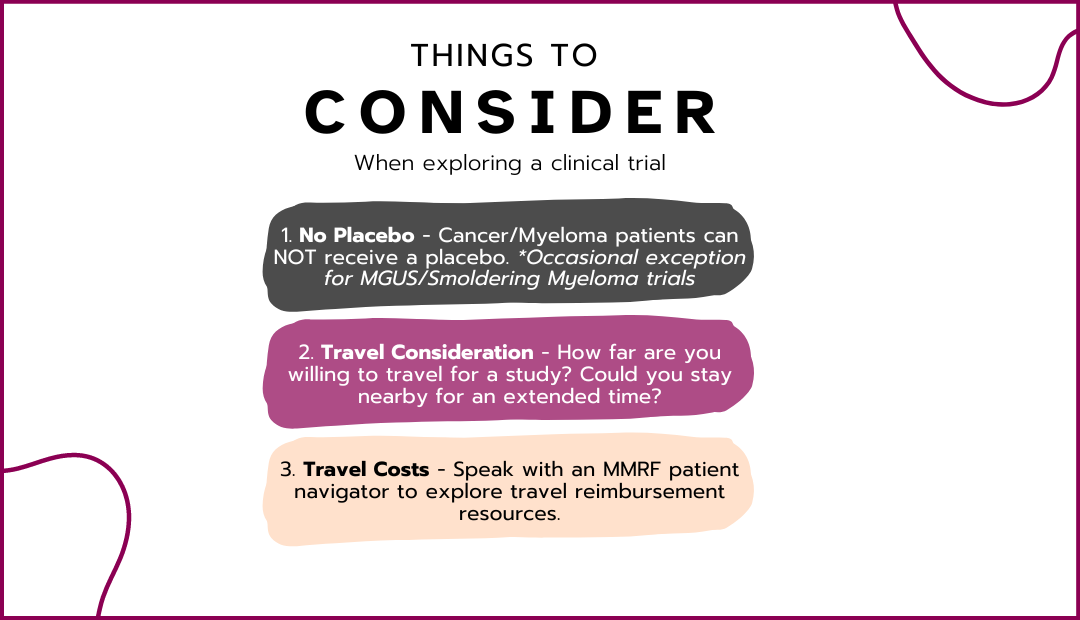Bortezomib and Pembrolizumab With or Without Pelareorep for the Treatment of Relapsed or Refractory Multiple Myeloma, AMBUSH Trial
NCT05514990
Age 18 +
Sex Both
Phase Phase 1, Phase 2
Third Opinion Trial Synopsis
In this clinical study, researchers are exploring a new treatment for patients with a specific type of blood cancer. The study focuses on a combination of therapies that may improve patient outcomes. Here are some key points about the study:
- The treatment involves a unique combination of drugs that target cancer cells in different ways.
- It aims to enhance the effectiveness of existing therapies, potentially leading to better results for patients.
- Participants will receive the treatment in a controlled environment, allowing researchers to closely monitor its effects.
- The study includes a diverse group of patients, which helps ensure that the findings are applicable to a wide range of individuals.
- Researchers are particularly interested in how this combination therapy can improve quality of life and extend survival rates.
Third Opinion AI Generated Synopsis
Trial Summary
This phase I/II trial studies the safety of the combination of bortezomib, dexamethasone, and pembrolizumab with or without pelareorep in treating patients with multiple myeloma that has come back (relapsed) or does not response to treatment (refractory). Chemotherapy drugs, such as bortezomib and dexamethasone, work in different ways to stop the growth of cancer cells, either by killing the cells, by stopping them from dividing, or by stopping them from spreading. Immunotherapy with monoclonal antibodies, such as pembrolizumab, may help the body's immune system attack the cancer, and may interfere with the ability of tumor cells to grow and spread. A virus modified in the laboratory, such as pelareorep, may be able to kill cancer cells without damaging normal cells. Giving the combination of bortezomib, dexamethasone, and pembrolizumab with pelareorep may work better in treating patient with multiple myeloma.
This phase I/II trial studies the safety of the combination of bortezomib, dexamethasone, and pembrolizumab with or without pelareorep in treating patients with multiple myeloma that has come back (relapsed) or does not response to treatment (refractory). Chemotherapy drugs, such as bortezomib and dexamethasone, work in different ways to stop the growth of cancer cells, either by killing the cells, by stopping them from dividing, or by stopping them from spreading. Immunotherapy with monoclonal antibodies, such as pembrolizumab, may help the body's immune system attack the cancer, and may interfere with the ability of tumor cells to grow and spread. A virus modified in the laboratory, such as pelareorep, may be able to kill cancer cells without damaging normal cells. Giving the combination of bortezomib, dexamethasone, and pembrolizumab with pelareorep may work better in treating patient with multiple myeloma.
from ClinicalTrials.gov
Locations & Contact
Fill out the form and to let the Multiple Myeloma Research Foundation know you are interested in this trial.
Contacts:

